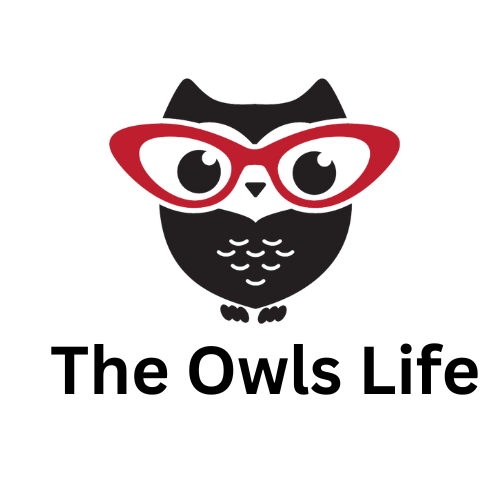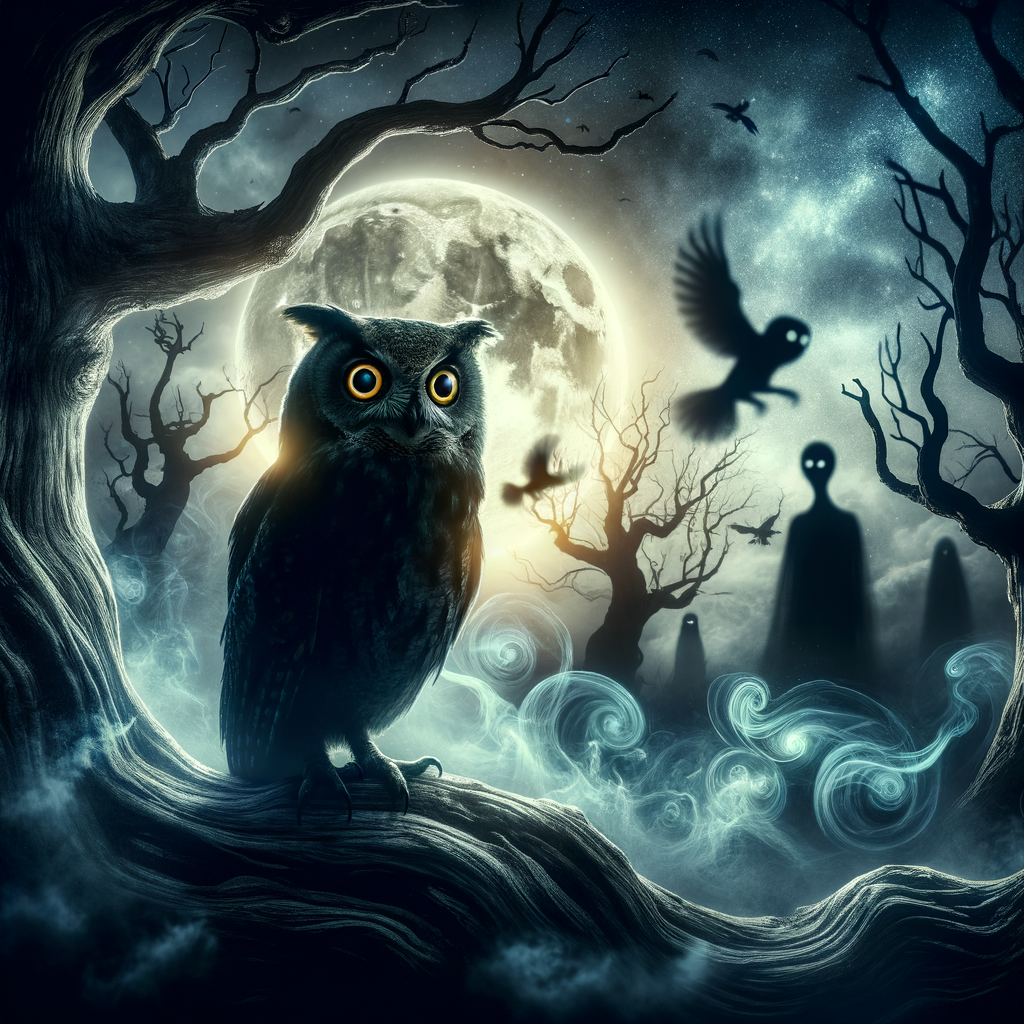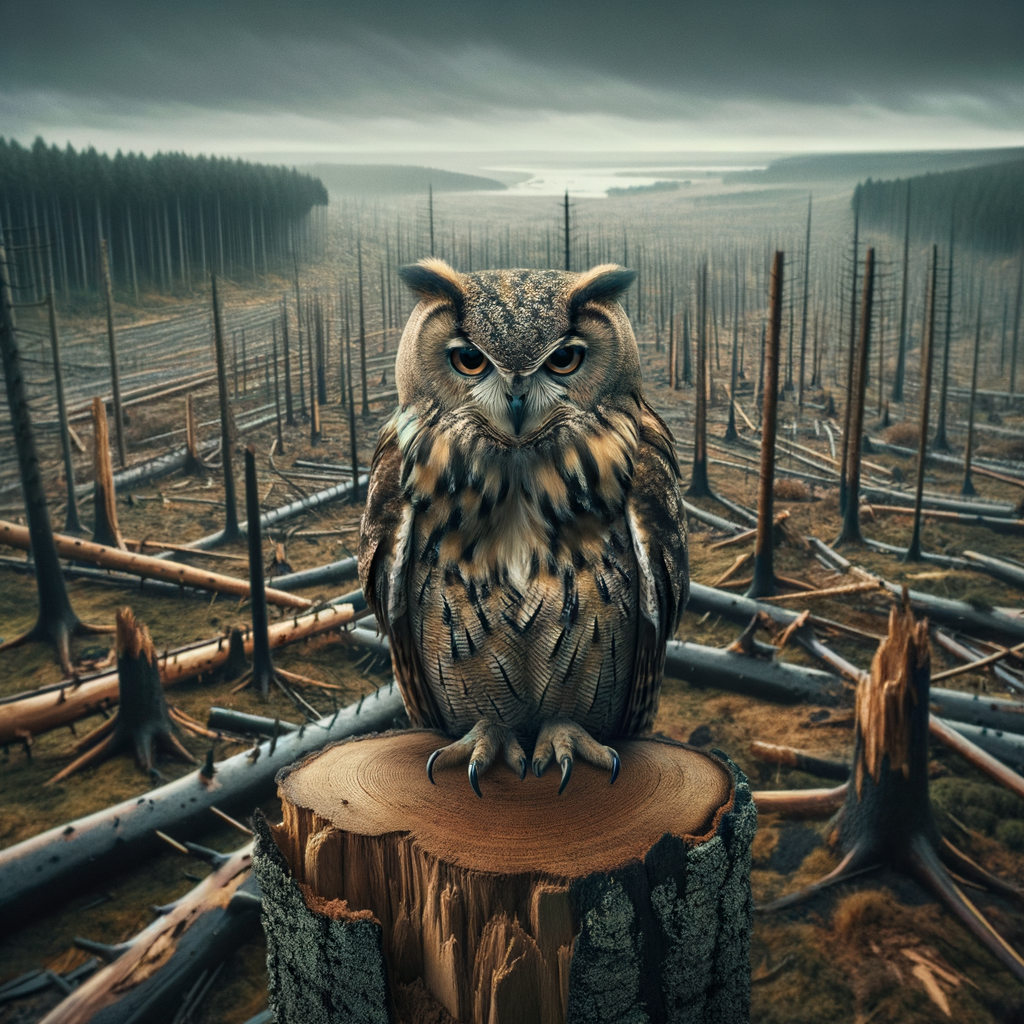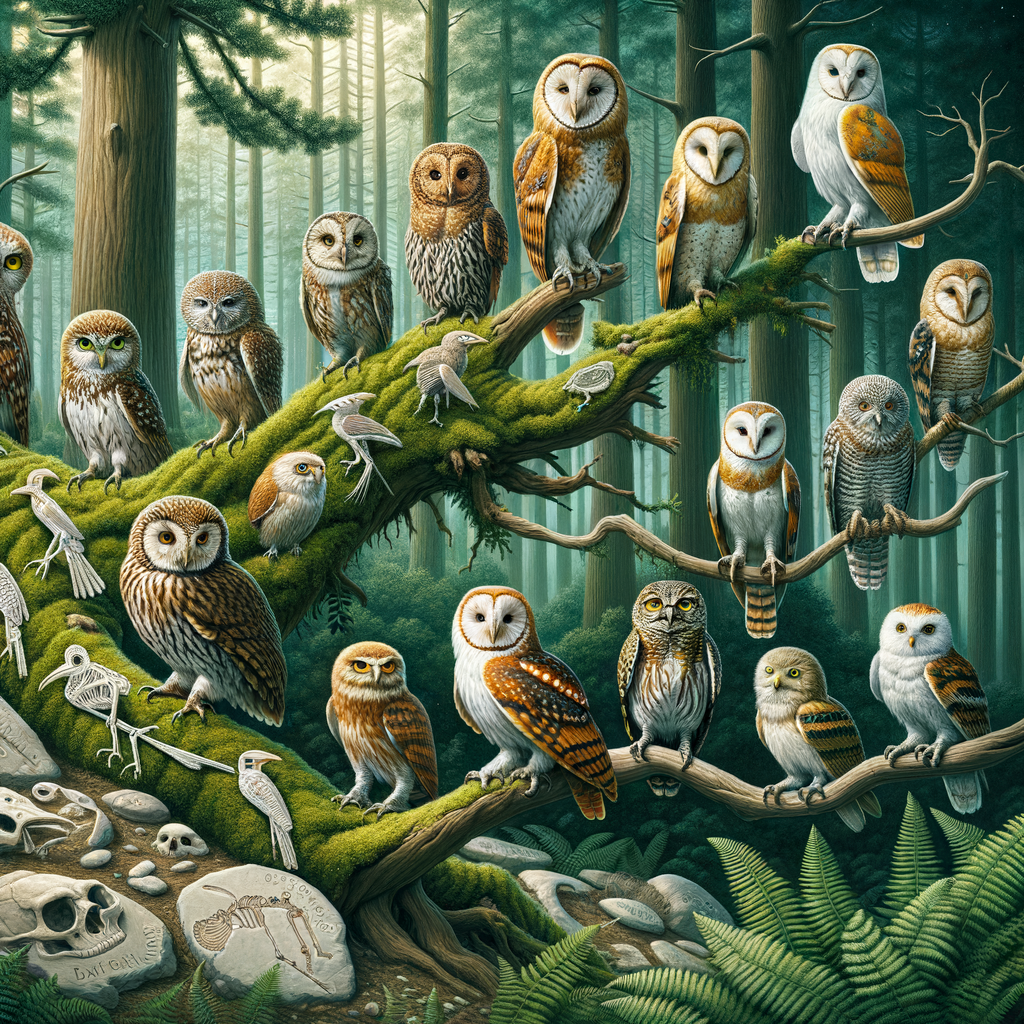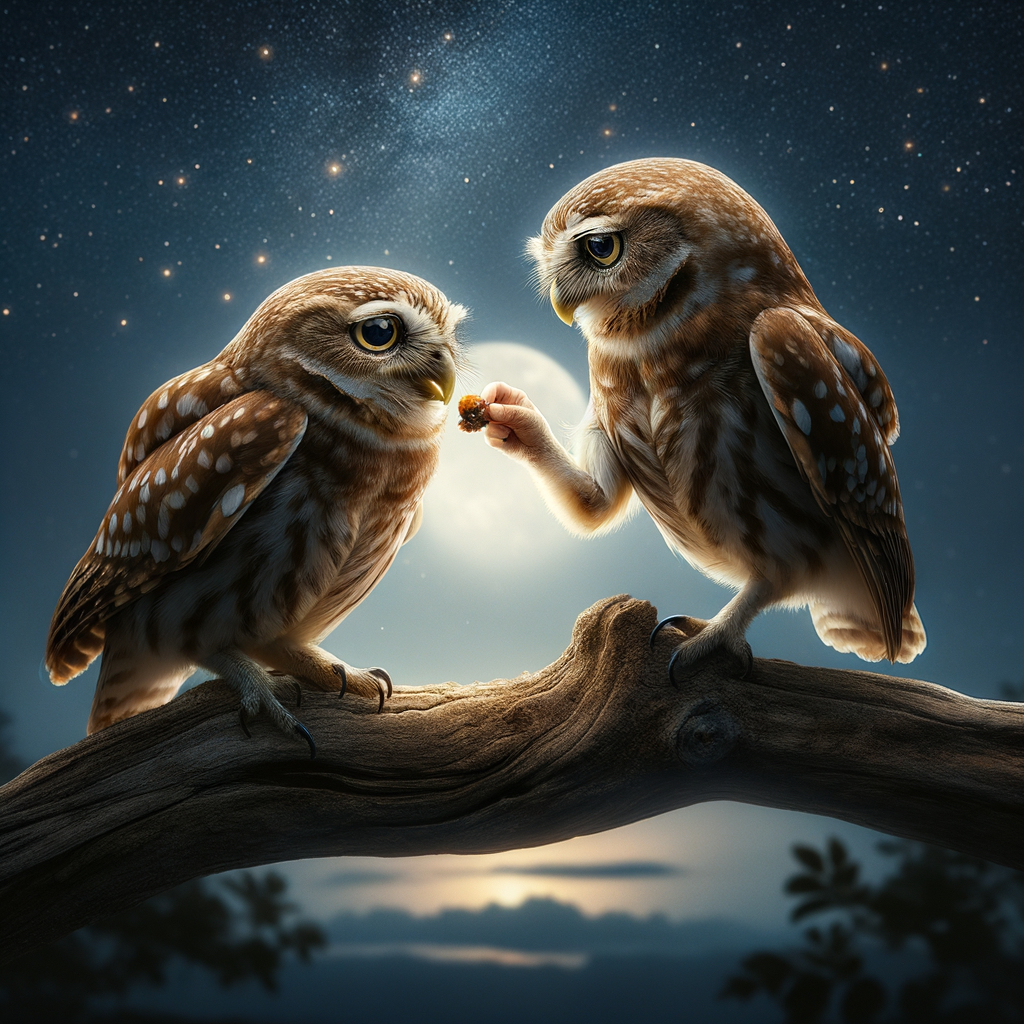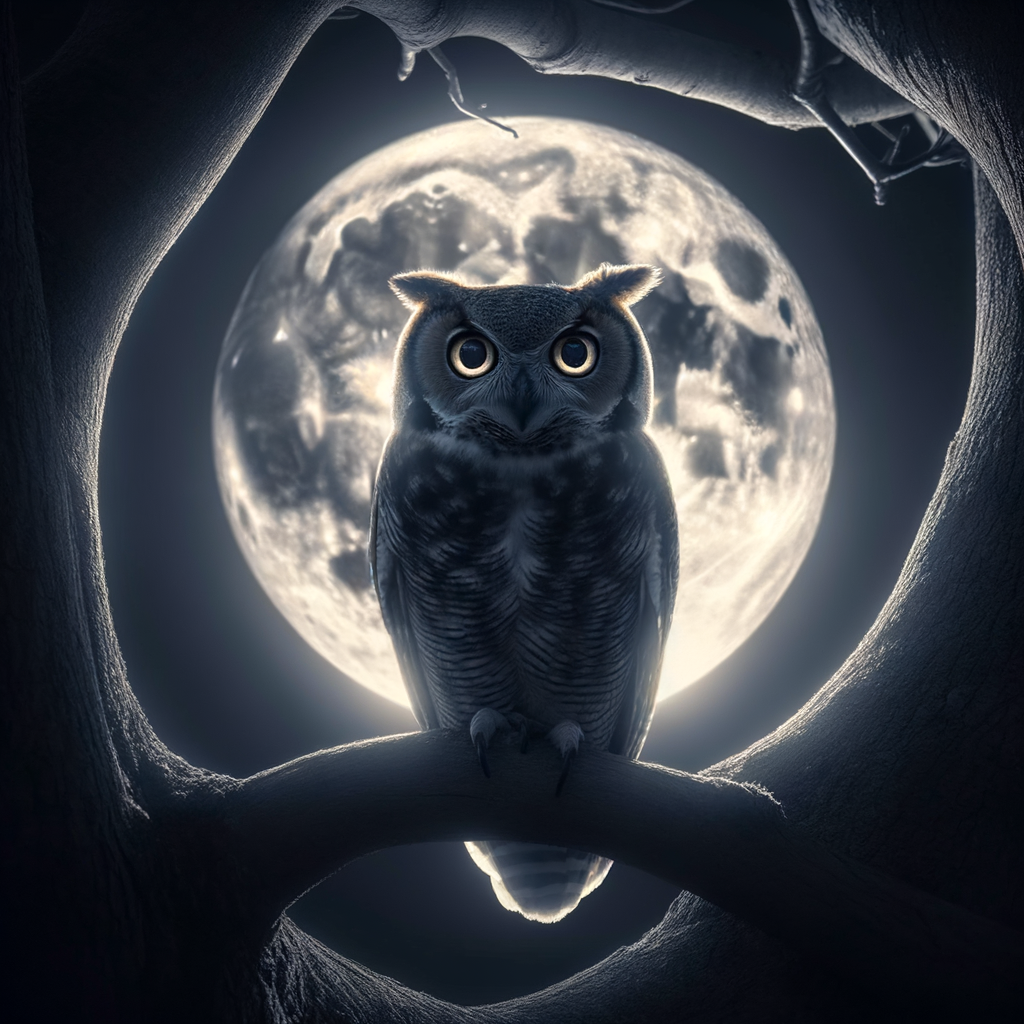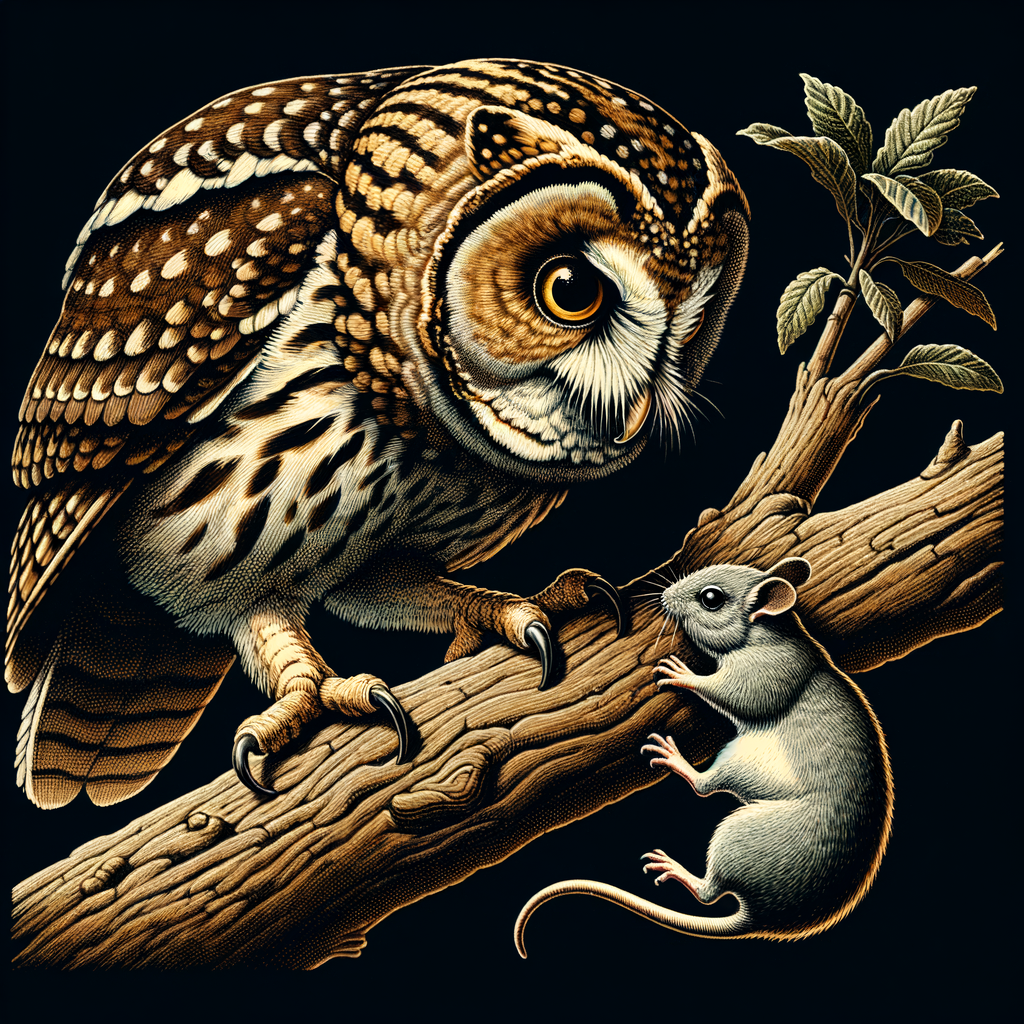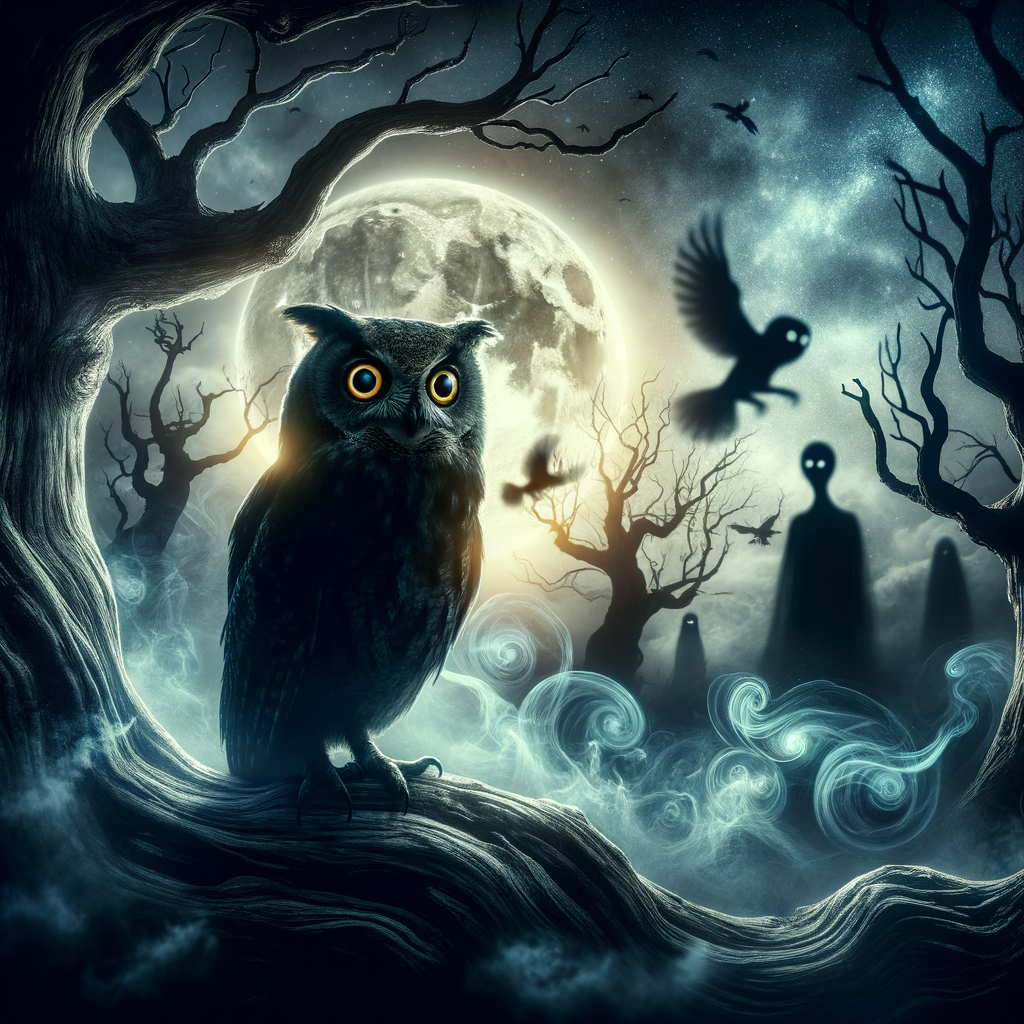
Introduction to Owls in Mythology
Owls have always fascinated people. They appear in many myths and stories around the world. Let’s explore their historical significance and symbolism.
- Historical significance of owls: Owls have been important in many cultures for thousands of years. In ancient Greece, the owl was a symbol of wisdom and was associated with Athena, the goddess of wisdom. The Romans also saw owls as wise creatures. In ancient Egypt, owls were seen as protectors of the dead.
- Global perspective on owl symbolism: Different cultures have different views on owls. In some Native American tribes, owls are seen as messengers or protectors. In Japan, owls are symbols of good luck and protection. However, in some parts of Africa and Europe, owls are sometimes seen as bad omens or symbols of death.
As you can see, owls have a rich and varied role in mythology. They are seen as wise, protective, and sometimes even mysterious creatures.
Owl Symbolism
Owls as Symbols of Wisdom
-
Origin of the association between owls and wisdom:
The connection between owls and wisdom dates back to ancient Greece. The owl was the symbol of Athena, the goddess of wisdom and warfare. This association made the owl a symbol of knowledge and learning. Ancient Greeks believed that owls had an inner light that gave them night vision, representing insight and understanding.
-
Examples of owls representing wisdom in literature:
Owls appear in many stories and books as wise creatures. In J.K. Rowling’s “Harry Potter” series, owls deliver mail and are seen as intelligent companions. Another example is A.A. Milne’s “Winnie the Pooh,” where Owl is known for his wisdom and knowledge, often giving advice to other characters. These examples show how owls are often used to symbolize wisdom in literature.
Owls as Symbols of Death and Misfortune
-
Exploring the Dark Side of Owl Symbolism
Owls are often seen as mysterious creatures. While some people think they are wise, others see them as a bad sign. In many stories, owls are linked to death and bad luck.
For example, in ancient Rome, people believed that hearing an owl hoot meant someone would die soon. This belief made people fear owls.
In Africa, some tribes think that owls are witches in disguise. They believe that seeing an owl means something terrible will happen.
-
Cultural Beliefs About Owls and Death
In Mexico, the owl is called “La Lechuza.” People think it is a witch that can turn into an owl. Seeing La Lechuza is a sign of death.
In Native American culture, some tribes believe that owls are messengers from the spirit world. They think that if an owl visits you, it means someone you know will die soon.
In Japan, owls are also seen as bad luck. The word for owl in Japanese sounds like the word for “suffering.” Because of this, many people in Japan think that owls bring bad news.
| Culture | Belief |
|---|---|
| Ancient Rome | Owl hoot means death is near |
| Africa | Owls are witches in disguise |
| Mexico | La Lechuza is a witch owl |
| Native American | Owls are messengers of death |
| Japan | Owls bring bad news |
As you can see, owls have a dark side in many cultures. These beliefs show how powerful and mysterious these birds are.
Owl Superstitions Around the World
European Owl Superstitions
- Owls and witchcraft in European folklore:In many parts of Europe, owls were often linked to witchcraft. People believed that witches could transform into owls to fly and cast spells. This made owls both feared and respected. For example, in England, it was thought that hearing an owl’s hoot meant a witch was nearby.
- The owl as an omen in European superstitions:Owls were also seen as omens. In some cultures, seeing an owl was a sign of bad luck or even death. For instance, in ancient Rome, the hoot of an owl was considered a warning of death. However, in other parts of Europe, owls were seen as protectors, believed to ward off evil spirits.
Asian Owl Superstitions
- The role of owls in Japanese and Chinese legendsIn Japan, owls are seen as symbols of good luck and protection. The Japanese word for owl, fukurou, can mean “no hardship” or “luck,” depending on the characters used. Many people keep owl charms to ward off bad luck.
In China, owls have a more complex role. They are often seen as harbingers of death, but they also symbolize wisdom and protection. Ancient Chinese legends tell of owls guiding lost souls and protecting homes from evil spirits.
- Superstitions about owls in IndiaSome believe that seeing an owl can bring wealth and prosperity. This is because the owl is linked to Lakshmi, the goddess of wealth.
However, there are also superstitions that view owls as bad omens. For instance, hearing an owl’s hoot is sometimes thought to predict death or misfortune. Despite these mixed beliefs, owls are respected for their wisdom and mystery.
| Country | Superstition |
|---|---|
| Japan | Owls symbolize good luck and protection. |
| China | Owls are seen as both harbingers of death and symbols of wisdom. |
| India | Owls can bring wealth but also predict misfortune. |
Owls in Ancient Legends
Owls in Greek Mythology
- The owl and the goddess Athena: In Greek mythology, the owl is closely linked with Athena, the goddess of wisdom and war. Athena often had an owl perched on her shoulder, symbolizing her sharp insight and knowledge. The owl was seen as a protector and a symbol of wisdom.
- Other references to owls in Greek legends: Owls appear in various Greek myths and stories. They were believed to be messengers of the gods and were often seen as omens. For example, an owl’s hoot was thought to signal the arrival of a divine message.
Owls in Native American Legends
-
The Owl as a Spiritual Guide in Native American Folklore
Many tribes believe that owls have special powers and can help people connect with the spirit world. The owl’s ability to see in the dark makes it a symbol of wisdom and insight.
For example, the Hopi tribe considers the burrowing owl to be a protector of the underworld. They believe that this owl can guide the spirits of the dead to their final resting place. Similarly, the Cherokee tribe sees the owl as a messenger from the spirit world, bringing important messages to the living.
-
Native American Owl Legends and Their Meanings
These stories often teach important lessons and explain natural phenomena. One well-known legend is the story of the owl and the raven. In this tale, the owl and the raven were once friends. However, they had a disagreement, and the owl’s feathers turned white, while the raven’s feathers turned black. This story explains why owls and ravens look the way they do today.
Another legend comes from the Lakota tribe. They tell a story about an owl who saved a young girl from danger. The owl’s bravery and wisdom helped the girl find her way home. This legend teaches the value of courage and intelligence.
Tribe Owl Legend Meaning Hopi Burrowing Owl as Protector Guides spirits to the underworld Cherokee Owl as Messenger Brings messages from the spirit world Lakota Owl Saves Girl Teaches courage and intelligence
Mystical Owls: From Folklore to Modern Interpretations
Owls in Modern Literature and Media
- The role of owls in popular books and movies: Owls have a special place in many stories and films. For example, in the “Harry Potter” series, Hedwig, Harry’s pet owl, is not just a pet but a loyal friend and messenger. Owls are often seen as wise and mysterious creatures, adding depth to the characters and plots they are part of.
- The continued significance of owl symbolism in modern times: Even today, owls are symbols of wisdom and mystery. They appear in logos, art, and even tattoos. Many people feel a connection to owls, seeing them as guides or protectors. This shows that the mystical image of owls has not faded over time.
The Owl in Modern Superstitions and Beliefs
- Current superstitions about owlsSome think that seeing an owl is a bad omen. For example, if an owl hoots near your house, it might mean that someone will get sick. In some cultures, people believe that owls are messengers of death. However, not all superstitions are negative. In some places, owls are seen as protectors and symbols of wisdom.
- The owl as a spiritual symbol in new age beliefsMany people think that owls can help them see the truth and understand hidden mysteries. Owls are also thought to be connected to the moon and night, which makes them symbols of intuition and inner knowledge. Some people even use owl imagery in meditation to gain deeper insights.
| Superstition | Belief |
|---|---|
| Owl hooting near home | Bad omen or illness |
| Owl as a protector | Symbol of wisdom |
| Owl in meditation | Gaining deeper insights |
Conclusion: The Enduring Fascination with Owls
Owls have always been a source of wonder and mystery. From ancient times to today, they have played a big role in stories and beliefs.
- Recap of the role of owls in folklore and superstition: Owls have been seen as wise and magical creatures. In many cultures, they are thought to bring good luck or bad luck. For example, in Greek mythology, owls were linked to Athena, the goddess of wisdom. In other places, people believed that owls could bring messages from the spirit world.
- The continued relevance of owl symbolism and superstitions: Even today, owls are important symbols. They are often used to represent knowledge and mystery. Many people still believe in the superstitions about owls. For example, seeing an owl might be seen as a sign of change or a warning. Owls are also popular in art, books, and movies, showing that our fascination with them continues.
Owls have a special place in our hearts and minds. Their role in folklore and superstition shows how much they have captured our imagination. And even now, their symbolism and superstitions are still relevant. Owls remind us of the magic and mystery in the world around us.
